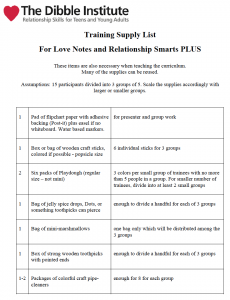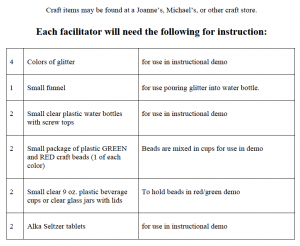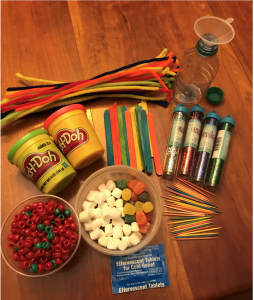The Administration for Children and Families has announced $24M in funding for Relationships, Education, Advancement, and Development for Youth for Life (READY4Life) grants. Deadline is July 1, 2020. Application can be found here.
READY4Life projects are targeted exclusively to youth, for projects designed to support healthy relationships and marriage. The Dibble Institute is dedicated to your success as an applicant!
Love Notes, Relationship Smarts PLUS, Mind Matters, and Money Habitudes will help you successfully meet the grant’s critical components:
- Communication skills
- Conflict resolution, management, and problem-solving skills
- Knowledge of the benefits of marriage
- Stress and anger management
- Affection and intimacy
- Expression and discussion of negotiation skills
- Financial literacy
- Parenting skills (as applicable)
- Trauma and its effects on forming healthy relationships
Plus you will have the entire Dibble team supporting you to make your program a success! Email Grants@DibbleInstitute.org with any grant-related questions.
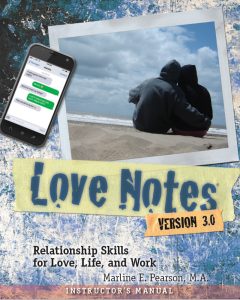
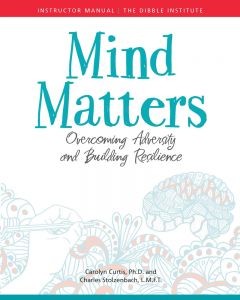
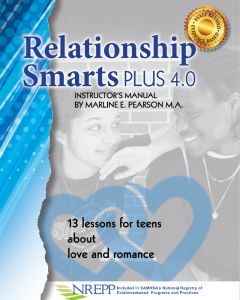

Curriculum Descriptions
Love Notes: Relationship Skills for Love, Life, and Work
Love Notes covers all four required topic areas and three optional ones from the grant application.
For a growing number of young adults (14-24), unplanned pregnancy, single parenting, and troubled relationships derail personal goals. Love Notes 3.0 was created for this vulnerable audience, including young parents. In 12 hours, they discover—often for the first time—how to make wise choices about relationships, sexuality, pregnancy, partnering, and more. Version 3.0 includes brand new content important to today’s youth, including sexual consent, sexual assault, cyber bullying, online porn, sexting, drugs & alcohol – and their impact on relationships.
Rather than focusing on what to avoid, Love Notes builds positive skills and appeals to aspirations. It offers young people new conceptual frameworks, including the Success Sequence, to help them make informed decisions instead of sliding into unplanned choices that can derail their lives.
Love Notes is listed as an Evidence Based Program with the Office of Population Affairs
Relationship Smarts PLUS covers all four required topic areas and three optional ones from the grant application.
Relationship Smarts PLUS 4.0 Classic is designed to help teens (14-18) learn how to make wise choices about relationships, dating, partners, sex, and more.
This 12 hour curriculum uses popular media and lively activities to engage both males and females in learning. Key topics include:
- Self-awareness: Personal strengths/weaknesses, past influences, goal setting, friendship, peer pressure, maturity, clarifying values, self-regulation.
- Developing healthy relationships: Attraction, building blocks of positive relationships, how to assess relationships, realistic love, low-risk dating, “deciding vs. sliding.”
- Problems, warnings, and dangerous relationships: Break-ups and broken hearts, unhealthy and abusive behaviors, ways to exit safely, boundaries, dating violence, sexual assault.
- Communication and conflict: Danger signs, time outs, anger regulation, the Speaker-Listener Technique, problem-solving.
- Intimacy and sexual decisions: Pacing relationships, what intimacy means, sex in the context of relationships, boundaries, myths of pregnancy, risky situations, and sexual consent, refusal skills, how unplanned pregnancy affects a child.
- Updates to the Success Sequence: how the order of school, commitment, and babies impacts your future
- Social media: The impact of “constant connection,” sexting realities and risks, online porn, personal polices on using social media.
Its content is delivered through activities that are informative, fun, and affirmative. The student workbook helps teens apply curriculum concepts to their own lives. Parent-Teen activities for each lesson stimulate conversations and connections with trusted adults.
Mind Matters: Overcoming Adversity and Building Resilience
(Mind Matters can help you address the 9th topic area from the grant application “Trauma and its effects on forming healthy relationships (as applicable.”) To see how you teaching the program might look in a one-on-one setting, watch this Mind Matter’s Lesson on our YouTube Channel.
People experiencing trauma and toxic stress often have difficulty regulating their emotional responses when facing challenges in school, life, relationships and family settings.
Mind Matters’ lessons and activities teach people skills to respond to negative experiences with innovative methods based on current research and neuroscience. These practices give individuals a way to take charge of their emotions and improve their states of mind. Participants learn to address their physical, relational, and mental health needs.
Mind Matters’ practical, hands-on lessons explore the effects of trauma along with the healing process. Each lesson includes activities that build resilience and increase hope.
Mind Matters addresses the following topics:
- Self-Soothing and Regulating Emotions: Cultivate a mindfulness practice
- Managing Stress Effectively: Learn to deal with intrusive thoughts
- Developing Empathy: Improve interpersonal communications
- Creating a Code of Honor: Develop a life of intention
- Building and Using a Support System: Learn how to ask for help
The skills taught in Mind Matters are designed to be practiced over a lifetime. The curriculum is not meant to be therapy or to replace psychotherapy. Rather, it is intended to be facilitated by paraprofessionals to inspire, uplift, and set people on the journey of healing as they cultivate deeper resilience.
(Money Habitudes can help you to address the 8th topic area from the grant application that focuses on financial literacy.)
For most people, spending behaviors reflect unconscious habits and attitudes that were acquired young and persist regardless of financial savvy or economic status. Money Habitudes® explores this phenomenon, and serves as an important, non-technical addition to standard financial literacy programs.
Understanding money is important for all young people. Even basic financial competence can improve their relationships as well as help them attain goals for lifestyle, education, career and family. But technical knowledge about money isn’t enough.
In real life, it is often hidden attitudes that dictate how people actually spend, save and think about money, regardless of financial skills or economic status. Money Habitudes® for Teens and Money Habitudes® for Young Adults focus on exploring this “human side of money.”
For applicants who wish to meet all nine criteria by implementing more than one Dibble curriculum in 12 hours, we can provide guidance for the following:
- Love Notes/Relationship Smarts PLUS – 8 hours
- Mind Matters – 3 hours
- Money Habitudes – 1 hour
Please email Grants@DibbleInstitute.org for details.
Grant Aids
Download detailed Lesson Correlations to READY4Life Essential Components
| Essential Components
(First 4 are mandatory) |
Love Notes | Relationship Smarts PLUS | Mind Matters | Money Habitudes |
| Communication skills (including expression, discussion, and negotiation skills). | ✓ | ✓ | ✓ | |
| Conflict resolution, management, and problem-solving skills | ✓ | ✓ | ✓ | |
| Knowledge of the benefits of marriage | ✓ | ✓ | ||
| Stress and anger management | ✓ | ✓ | ✓ | |
| Affection and Intimacy | ✓ | ✓ | ✓ | |
| Expression and discussion of negotiation skills | ✓ | ✓ | ✓ | |
| Financial literacy such as budgeting, financial planning, and management | ✓ | |||
| Parenting Skills (as applicable) | ✓ | ✓ | ||
| Trauma and its effects on forming healthy relationships (as applicable) | ✓ |
| Additional Curricula Criteria | Love Notes | Relationship Smarts PLUS | Mind Matters | Money Habitudes |
| Is appropriate for youth (14-17, including young adults 18-24, as applicable) | ✓ | ✓ | ✓ | ✓ |
| Promotes positive relationships, such as youth-partner, youth-parent, or youth-child (in the instance of teen or young adult parents ) interactions | ✓ | ✓ | ✓ | ✓ |
| Is culturally and linguistically appropriate to the target population | ✓ | ✓ | ✓ | ✓ |
| Supports program goals and outcomes | ✓ | ✓ | ✓ | ✓ |
| Includes staff development and training components | ✓ | ✓ | ✓ | ✓ |
| Curriculum-based workshops (particularly those related to education in high school) | ✓ | ✓ | ✓ | ✓ |
| Is age appropriate , particularly when serving fathers or mothers who are minors | ✓ | ✓ | ✓ | |
| Uses technical support provided by the developer (to help support implementation fidelity). | ✓ | ✓ | ✓ | ✓ |
| Skills-Based | ✓ | ✓ | ✓ | ✓ |
To assure the effectiveness and fidelity of our curriculum, we ask grantees to plan for the following:
- Annual curriculum/a training or refresher training
- Monthly technical assistance calls and webinars that focus on grantee needs like recruitment, retention, and Continuous Quality Improvement
- Working with Dibble on any adaptations
- Teaching 12 hours of core content (may consist of only Love Notes or Relationship Smarts PLUS or a combo of one of those programs plus Mind Matters and/or Money Habitudes.)
- Using our fidelity tools.
All Dibble programs are evidence-informed and many are also evidence based.
The following fidelity aids and checklists are included when you purchase the Love Notes or Relationship Smarts PLUS:
- Annotated slide deck to focus the instructor on key content.
- Observational fidelity tools for coaches and evaluators
- Knowledge test
- Inventory of related scales that can assess attitudinal and behavioral outcomes regarding sex, relationship quality, communication, conflict, control, violence as well as mediators.
Note: To maintain fidelity, your Love Notes and Relationship Smarts instructors must be professionally trained by a Dibble Master or Certified Trainer.
Allowable Adaptations
without Publisher Notification
In the real world, curricula occasionally need to be adapted to meet the needs of the young people being served or the setting where they are being used. Below you will find examples of adaptations that are permitted without consultation with Dibble.
Please feel free to discuss further adaptations you are considering with us by emailing Grants@DibbleInstitute.org
Allowable Adaptations for Love Notes and Relationship Smarts PLUS
- Activities that directly relate to content
- Additional content may be added to the slide presentations deck from the complete Instructor’s Manual based on participant need and available time.
- Include Love Notes activities for expecting and parenting teens.
- Activities that do not relate to the content
- Change the first names in the scenarios to reflect the participants’ culture and gender.
- Add icebreakers or energizers at the start of each session or between modules if delivering during an extended period of time.
- Program Delivery
- Deliver lengthened sessions.
- Increase the number and frequency of sessions.
- Teach in-person or online.
- Use exercises, share facts, or make reminders about key concepts as part of booster text or sessions.
- Provide make-up sessions, including pre-recorded lessons.
- May be used with young adults up to age 24.
Unallowable Adaptations
- Delivery without using the Dibble provided PowerPoints and all participant materials, such as the workbooks and in the case of Love Notes, the Colors Personality Inventory.
- Delivery by a facilitator who has not attended a Dibble Certified.
The author of Love Notes and Relationship Smarts PLUS, Marline Pearson, is a criminologist with a long background in teaching domestic violence prevention. She is experienced with the Duluth model of power and control as well as Steven Stosny’s Compassion Power abuse treatment and prevention. In the development of Love Notes and Relationship Smarts PLUS she consulted with young adults who had been in abusive relationships who helped shape messages that would have helped them. In addition she has consulted closely with Anne Menard, a national leader in the field of domestic violence prevention, policy and advocacy, and with Michael Johnson, PhD., a leading IPV researcher.
Love Notes and Relationship Smarts PLUS teach young adults how to recognize abuse — emotional, verbal and physical, to become aware of the risks, early warning signs, and steps to take. The program also offers ways to assess the “health and safety” of a relationship. It not only teaches youth what to avoid, but also strongly teaches them how to create relationships that are healthy and respectful. It has been evaluated at Auburn University as an intervention to reduce teen relationship abuse. Findings show a significant reduction in verbal aggression.
Take a look at these resources to give you background, practical strategies, and tips for developing your grant program.
Webinars
Case Studies
Tip Sheets
Evaluatior List
In Alphabetical Order
Thank you for requesting a recommendation from Dibble for evaluators. Below is a list of evaluators known to The Dibble Institute for their high quality work. We recommend you contact them directly to learn about their approach, services, and costs.
Angie Turner Associates, Angie Turner, Ph.D. info@AMTCassociates.com
Child Trends – Jennifer Manlove, Ph.D. jmanlove@childtrends.org
Educational Evaluators – Joseph Donnely, Ph.D. joseph@educationalevaluators.com
Jean K Elder & Associates, Inc Jean K Elder, Ph.D. jean@jkelder.com
Midwest Evaluation – Matthew Shepherd, Ph.D. matt.shepherd@midwestevaluation
Philliber Research Associates – Ash Philliber, Ph.D. aphilliber@philliberresearch.com
Research and Evaluation Associates, William Medendorp, PhD, william@reallc.org
The Dibble Institute is pleased to consult with you as you write your grant and after it has been awarded strategies to sustain your activities over time. We have demonstrated over nine years of a federal grant, how to bring relationship education cost-effectively to large numbers of youth by using existing community systems.
We can also help you develop your sustainability plans by identifying alternative funding streams that support relationship education beyond your grant. For instance, Love Notes has been implemented using Rape Prevention Education funding. And, in some jurisdictions Love Notes and Mind Matters are funded for mental health prevention and early intervention.
Please email Kay Reed, Executive Director, at kayreed @ DibbleInstitute.org to set up a time to consult.
2020 Funding Opportunity Announcement for Healthy Marriage Youth Programs
Event Description
This webinar will discuss a range of issues organizations should consider as they design programs and prepare applications in response to the Funding Opportunity Announcement for the 2020 Healthy Marriage Youth grant competition. If you miss or can’t attend a webinar, all webinars and slides will be archived on this webpage soon after the webinar.
Time/Date
2:00PM Eastern (11:00AM Pacific) on Monday, June 8, 2020
To help people transition to online teaching, a group of Dibble clients from around the country shares and developed ideas and strategies for facilitating Dibble Programs across large and small, rural and urban communities. Their suggestions for online lesson-by-lesson implementation of our programs can be accessed by Dibble clients. There is no one way to conduct an online program. Every organization and community have different needs and circumstances. The toolkit resources simply give ideas and thoughts for online implementation needs.
Grant Planning
Please call 800-695-7975 for a training quote.
Staff development, training, and refresher training are required with this funding. It is essential to assure that your instructors deliver Dibble materials with fidelity while meeting the needs of the young people they serve. Our Master Trainers provide a highly interactive, in-depth experience for all Dibble programs.
Benefits of training your staff:
- Enhance grant performance
- Boost speed of grant implementation
- Increase confidence and competence of instructors
- Improve program fidelity
All training clients receive Technical Assistance as part of their training package. We offer two hours of complimentary consultation per organization that have held or attended a Dibble training.
COVID 19 NOTE: The Dibble Institute is planning to conduct all trainings for the remainder of 2020 in an online format or until California, where we are headquartered, allows for such gatherings and travel.
The quality of our trainings will remain high, based on our standards for excellence.
Trainings will take place under the oversight of Dr. Rachel Savasuk-Luxton, Director of Training and Research. A Dibble Master trainer will facilitate the training over five consecutive days (M-F) for 3.5 hours each day, the equivalent of a three day training. In addition, trainees in virtual sessions will be given pre-work and daily assignments to complete in order to enrich the training time.
Count on us to be on your team!
In support of the grant requirement that grantees “Use technical support provided by the developer (to help support implementation fidelity),” we are pleased to provide you with a team of experts to help assure the success of your funded program.
The Dibble Institute has successfully provided relationship skills education in a variety of venues with diverse populations for years. We have managed large federal grants and we have sat on federal grant review panels. We are happy to share our expertise so you can be successful as well!
Our staff will consult with you to develop effective:
- Grant and program implementation approaches,
- Partner and participant recruitment strategies,
- Program adaptations,
- Evaluation plans, and more.
We meet you where you are and deliver these services in a variety of ways – email, ZOOM, conference call, in person – whatever works best for you. You may want to join our small groups of client organizations working in similar settings for even greater synergy.
Our Technical Assistance Clients include:
- Hundreds of federal, state, and local grantees
- IFC International
- Mathematica Policy Research
- Public Strategies, Inc.
- Urban Institute
- Cliexa
All training clients receive Technical Assistance as part of their training package. We offer two hours of complimentary consultation per organization that have held or attended a Dibble training. Additional consultation is offered on a either a retainer or hourly basis
Dibble Institute Classroom Teacher Model in Schools
Use a proven, effective mini-award program with certified classroom school teachers already teaching in schools!
Why Use the Classroom Teacher Model?
- The classroom teacher model allows the grant dollars to go further and reach more students. Very Cost Effective.
- The classroom teacher model is a great option for an organization with limited staff to provide instruction. The model allows for the grant instruction to be in multiple locations at the same time.
- You are more assured of reaching the 90% completion grant requirement. Teachers can help with retention of students.
Advantages of Classroom Teacher Model:
- Being able to reach many students with a low cost of delivery. A number of factors would impact the cost per student, such as an evaluation and type of evaluation, student/teacher ratio, supports (incentives) provided, grant administration expenses, teacher training, and curriculum.
- Working directly to the decision makers about allowing relationship skills content in the schools. Teachers decide what they want to teach in their courses and have ready access to the administration to support their decisions.
- Allowing you to leverage the state/district content experts to reach multiple teachers.
- Recruiting only interesting, motivated teachers.
- Reaching large numbers of students in schools who will complete the entire program.
- Teaching RE in a course that closely aligns allows for sufficient classroom time to be allotted to the content.
- Allows the teacher to establish the instructional schedule, paying attention to school holidays, testing days, and special events. Each school and/or school district may be slightly different.
- Cost effective instructional costs as teachers are already paid a salary for teaching by the school. They may need to be compensated for their training time as well as collecting pre and post data and any additional data needed for the administration of the grant.
- Increasing program sustainability as the teacher may continue to teach the materials after the grant is over and will still be in the school once the instruction is over if the student has questions or problems and can seek out the teacher; even if it is the next school year.
- Using a teacher already familiar with the students and their individual personalities. The teacher knows how to work with each student and what to expect from them. This one is very important. The rapport with the students is already established. And after the instruction, even the next year, students have been known to seek out the teachers for help with relationship problems.
Want to learn more about how this could work for your grant activity? Call us at 800-695-7975 or write Grants@DibbleInstitute.org.
Download the Fillable PDF Materials and Training Agreement

1 All facilitators and students must have their own sets of materials with the exception of the MH cards, which are reusable.
2 Please note that Love Notes and Relationship Smarts Plus implementation also requires craft supplies that could total up to $200.
3 If your organization has a Dibble Certified Trainer, please call us to create a custom training plan.
The Dibble Institute is pleased to sign an MOU with you as part of your grant application. To help us understand your plans, please send an email to Aaron@DibbleInstitute.org with the following information:
- Your completed Training and Materials Agreement
- What program(s) you plan to use
- A brief overview of your project – setting, youth targeted, proposed timing of instruction (how many hours/days/weeks), number of youth reached, and instructional hours
- Recruitment/retention plans to keep 90% engagement
- Evaluation approach and research question(s), if including
- How you plan to implement with fidelity and what adaptations, if any, you propose.




